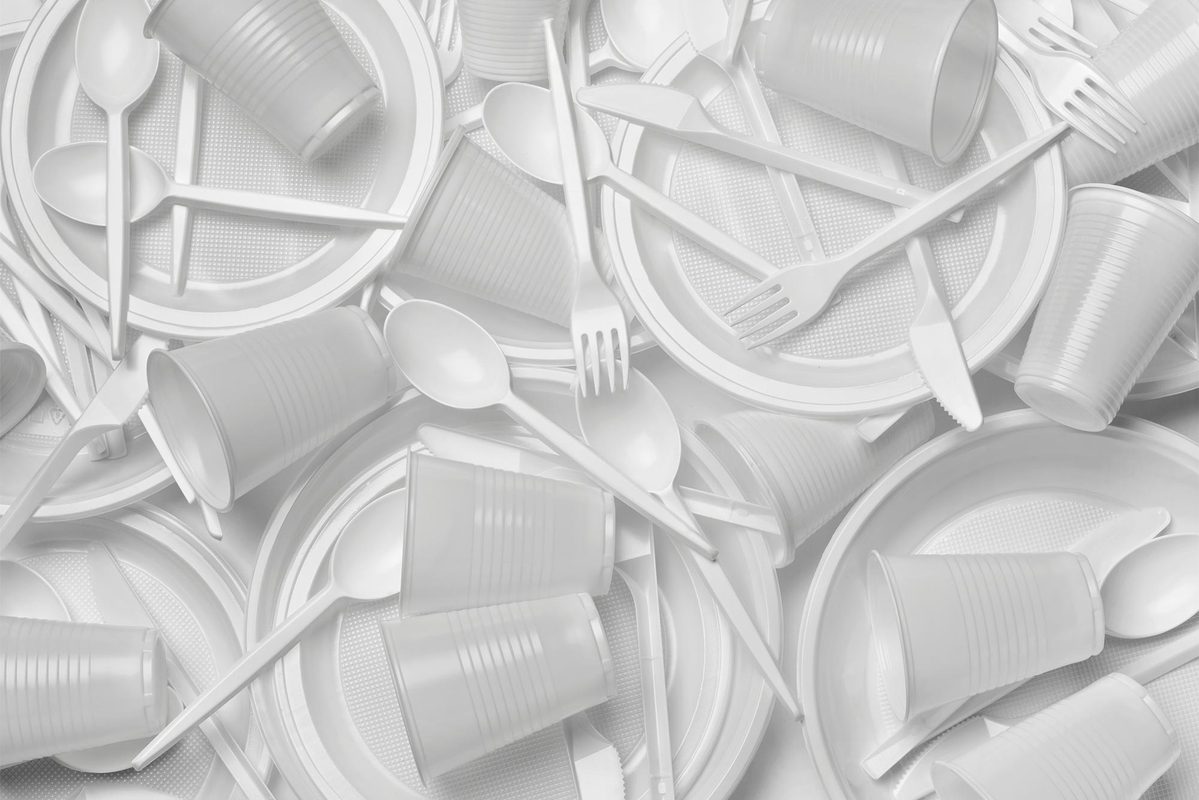In the Mike Nichols film “The Graduate,” Dustin Hoffman’s character Benjamin Braddock has a brief but iconic conversation with Mr. McGuire (Walter Brooke), an older family friend giving unsolicited business advice:
“I just want to say one word to you, one word.”
“Yessir.”
“Are you listening?”
“Yes, I am.”
“Plastics.”
If Hoffman’s character had indeed invested in plastics in 1967, when the classic movie was released, now might be a good time to get out.
There will be far fewer plastics in the future of the University of Virginia, as it cuts back on its use of single-use plastics starting July 21.
Virginia Gov. Ralph Northam issued an executive order in March requiring state agencies to stop buying, selling and distributing plastic and polystyrene food service containers, single-use plastic straws and cutlery, disposable plastic bags and single-use plastic water bottles by July 21, and to phase out all single-use plastics by 2025.
“This order is a positive step toward making our whole commonwealth cleaner and our economy more sustainable,” said Jennifer “J.J.” Davis, UVA’s executive vice president and chief operating officer, and Colette Sheehy, senior vice president for operations and state government relations, in a joint statement. “It also aligns closely with the University’s own sustainability goals and work that has already been underway to reduce single-use plastics.”
One goal in UVA’s 2030 Sustainability Plan is to reduce the University’s waste footprint by 70% by 2030 relative to 2010 levels, which includes reducing single-use plastics and increasing landfill diversion, an effort at UVA that dates back more than 10 years.
According to Davis, the University will no longer purchase single-use plastic bags, plastic cutlery, plastic food containers and plastic straws beginning July 21. Some existing inventory will be used until depleted. The University will phase out plastic water bottles and plastic bag liners over the coming year to the extent possible, with significant reductions in plastic water bottles by July 21.
“As we phase out plastic materials, we will introduce alternate materials that will be reusable, compostable or otherwise more sustainable,” Davis said in her statement. “Community members will also see an increase in publicly accessible compost bins across Grounds to divert as much waste as possible.”
Many of the on-Grounds dining facilities have already stated converting.










